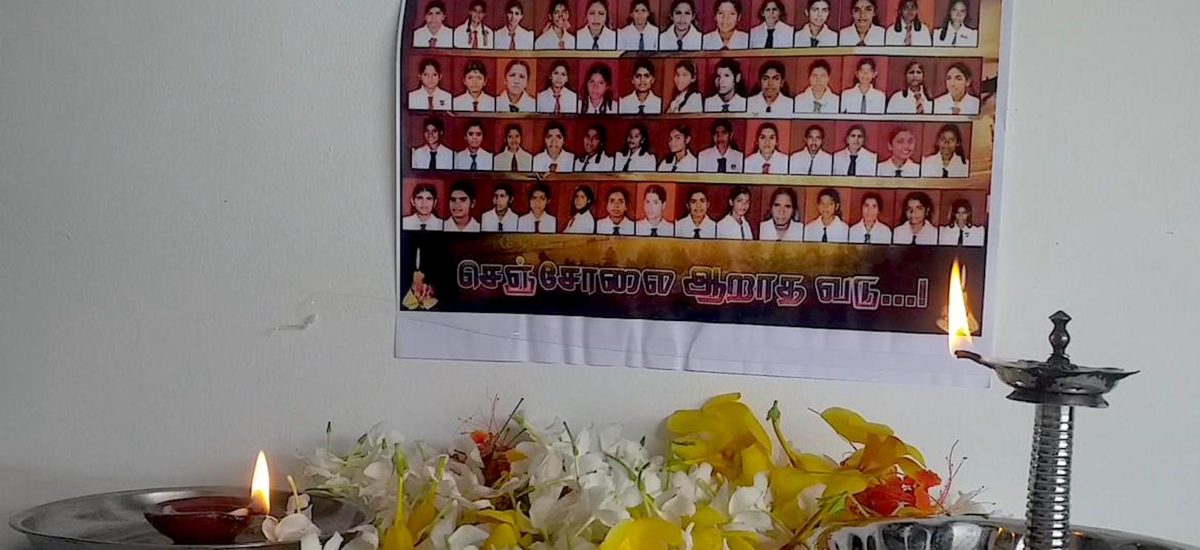Photo courtesy of Kumanan Kanapathippillai
When a government contravenes the rule of law, crushes human rights, reneges on its responsibility of protecting its own citizens and begins attacking them instead, the international community will step in. It is a simple and clear concept – any nation has to adhere to good governance principles if it wishes to remain a member of the international community. Denial, stalling and band aid measures are not the answer; they are unacceptable and will be challenged.
Sri Lanka was subject to another bruising at the UN Human Rights Council with UN High Commissioner for Human Rights Michelle Bachelet saying that repression of dissent had widened rather than diminished. “Surveillance, intimidation and judicial harassment of human rights defenders, journalists and families of the disappeared has not only continued, but has broadened to a wider spectrum of students, academics, medical professionals and religious leaders critical of government policies. Several peaceful protests and commemorations have been met with excessive use of force and the arrest or detention of demonstrators in quarantine centres,” she said in her statement to the HRC earlier this month.
Ms. Bachelet referred to many troubling aspects about the situation in Sri Lanka including the imposition on emergency regulations to tackle the pandemic, slow progress in resolving cases connected to war crimes, arbitrary arrests and detention under the PTA, new laws to oversee civil society, the presidential pardon of Duminda Silva, the de-radicalization laws and deaths in custody.
The High Commissioner went on the say that her office had an information and evidence repository with nearly 120,000 items and that it would initiate more information gathering this year.
In his reply, Foreign Minister G.L. Peiris said the government rejected any external initiatives while domestic processes are “vigorously addressing” the issues, claiming such an action would polarize the society.
In the last few days, however, certain statements have been made that suggest that a different approach is being considered, probably out of expediency rather than a genuine change of heart. In dire economic straits, the government is anxious not to lose GSP plus that gives the country’s exports better access to EU markets. However it is conditional on Sri Lanka improving human and labour rights.
High ranking government leaders, including President Gotabaya Rajapaksa, have had meetings the Sri Lankan Collective for Consensus, which is a newly formed group of civil society actors, to address accountability and reconciliation issues among other matters. President Rajapaksa has said he wants to have a dialogue with Tamil diaspora groups, there is talk of amending the PTA and some prisoners held under the PTA have been released.
In July the president tweeted that the government was committed to work with the UN to ensure accountability to achieve peace and reconciliation within a democratic and legal framework to ensure justice by implementing institutional reforms.
But in the words of American novelist James Baldwin, “I can’t believe what you say, because I see what you do.”
At a discussion on the human rights situation in Sri Lanka conducted by the Daily Mirror, the panellists were Meenakshi Ganguly, South Asia Director of Human Rights Watch, and Ambika Satkunanathan, a human rights lawyer and a former commissioner of the Human Rights Commission.
Both panellists were quite clear that successive governments were to blame for the culture of impunity gripping Sri Lanka. Numerous commissions had been appointed on many subjects, only to have their reports gathering dust on some bureaucrat’s shelf. Many promises had been made and broken; it was a case of all talk and no action. While the previous government had in fact committed itself to moving forward with the Transitional Justice process with clear benchmarks, it had achieved little. Even those gains have been negated since November 2019 with the election of President Rajapaksa.
“Less words and more action is now the right path,” said Ms. Ganguly, pointing out that the government’s failure to address human rights concerns would lead to repercussions such as sanctions.
Refuting the view that the government needed more time because it was dealing with a pandemic, Ms. Ganguly cited the long standing issues of disappearances, detentions under the PTA and the involvement in international crimes by the very people now leading the country as the government continued to crack down on dissenters and the families of the disappeared.
Ms. Satkunanathan added that people who attempted to remember their war dead were arrested under the PTA while favoured people arrested for various crimes were granted bail and others were not. She drew attention to the latest case of impunity where former State Minister for Prisons Lohan Ratwatte remained as State Minister for Gems and Jewellery despite committing clearly illegal acts.
Rejecting the notion that human rights had to take second place to national security and sovereignty, Ms. Ganguly said that the national security argument was often used to justify the worst crimes of excessive force when national security actually meant protecting the public. Governments told voters to give them a mandate to protect the people but then went on to consistently violate the rights of the public.
“No country has a perfect human rights record so every country must hold other countries to account. Sri Lanka should also speak up for rights of others. That’s how you have a world that upholds universal human rights,” Ms. Ganguly pointed out.
The argument of sovereignty also did not hold water because the world was interconnected. People who were abused and discriminated against in their own countries were compelled to move elsewhere, creating asylum seekers and refugees.
Ms. Satkunanathan added that civil society activists, especially in the north and east, were facing reprisals for their work on conflict related issues and disappearances. On the pretext of fighting violent extremism, the government was arresting people without a clear definition of what it meant.
She stressed that as a citizen of Sri Lanka, she should be able to live in a country where her rights were not violated and she was not afraid but could live in dignity in a relationship of trust with the state.
Ms. Ganguly refuted the idea that the international community was unfairly targeting Sri Lanka, pointing out that her organisation, Human Rights Watch, dealt with 94 countries ranging from Britain to Japan. Every government made mistakes which they should own up to and correct. Governments that said they were being targetted and unfairly criticised were being arrogant; they believed that they did not make mistakes, Ms. Ganguly said.
Governments needed to respect human rights and comply with their own commitments to become a responsible member of the international community, she added. “In Sri Lanka, much more is needed for justice, accountability, respecting fundamental rights and protecting people.”


